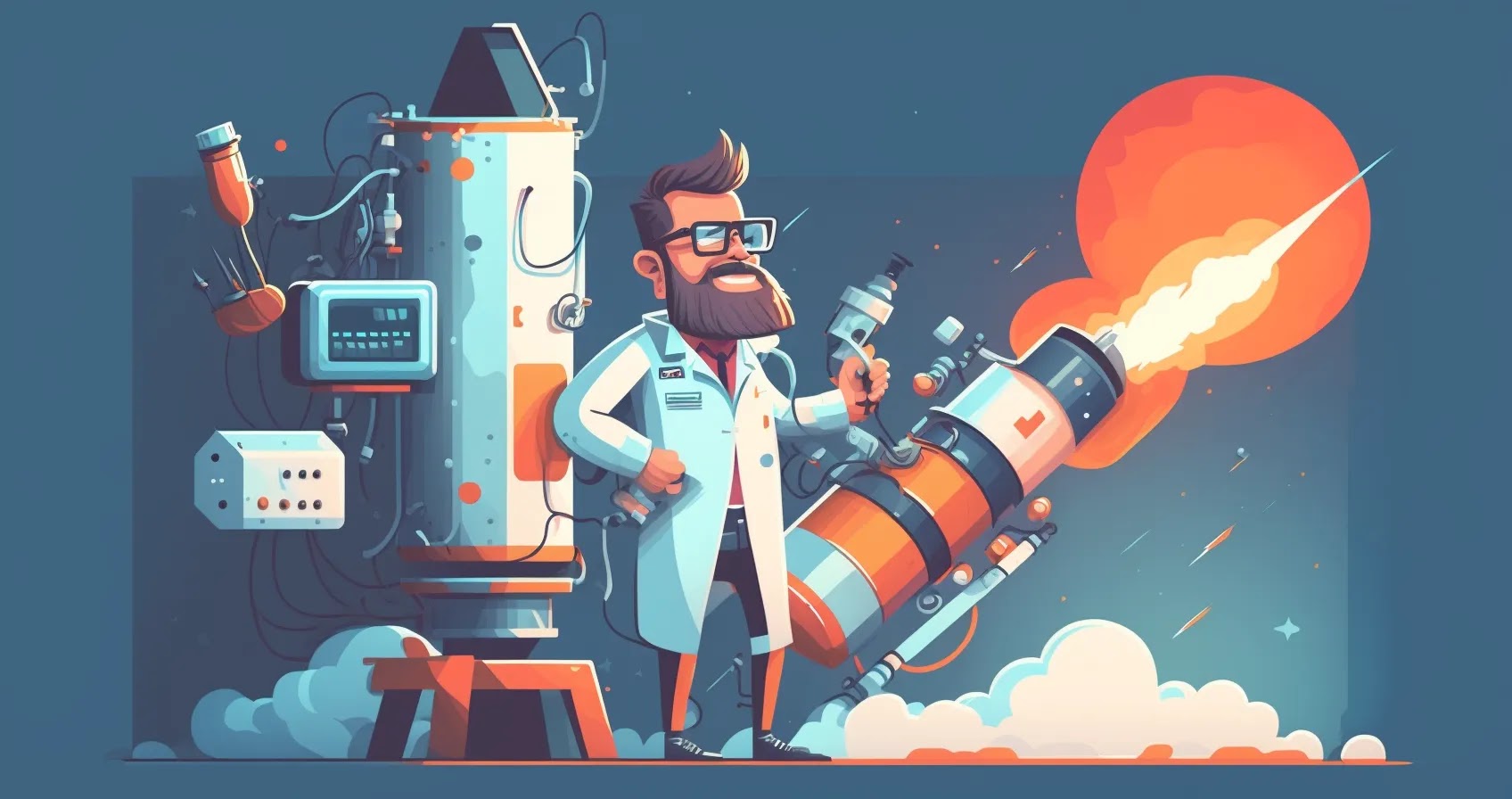As a rocket scientist, you will be part of a highly skilled team that designs, develops, and tests spacecraft and rocket systems.
This career is for individuals who are passionate about space exploration and technology and want to make a significant impact in the field of aerospace engineering.

Quick Navigation:
Reasons to become a Rocket Scientist
Becoming a rocket scientist is not only a prestigious career but also a highly rewarding one. Here are some reasons why you should consider becoming a rocket scientist:
- Contributing to space exploration and advancing space technology
- Working on exciting and challenging projects that require critical thinking and problem-solving skills
- Competitive salary and benefits packages
- Opportunities for professional growth and career advancement
- Working with a team of professionals who share your passion for space and aerospace engineering
How to become a Rocket Scientist
To become a rocket scientist, you must have a strong educational background in aerospace engineering or a related field. Here are the steps to follow:
- Earn a bachelor’s degree in aerospace engineering or a related field from an accredited institution.
- Gain practical experience through internships or co-op programs while in school.
- Consider pursuing a master’s or Ph.D. degree to specialize in a particular area of rocket science.
- Obtain a professional engineering license or certification to enhance your credentials and demonstrate your expertise.
Skills for Rocket Scientists
To excel as a rocket scientist, you must possess a combination of technical and soft skills. Here are some of the essential skills:
- Strong understanding of mathematics and physics principles
- Proficiency in computer-aided design (CAD) software
- Excellent problem-solving and critical thinking skills
- Excellent written and verbal communication skills
- Strong project management skills
Career Development
As a rocket scientist, you can advance your career through several paths, including:
- Project management roles
- Technical leadership positions
- Research and development opportunities
- Executive positions in aerospace companies
Requirements of Rocket Scientists
To work as a rocket scientist, you must meet the following requirements:
- Bachelor’s degree in aerospace engineering or a related field
- Practical experience through internships or co-op programs
- Strong technical skills in mathematics, physics, and computer-aided design
- Strong written and verbal communication skills
- Ability to work in a team environment
Interview Preparation for Rocket Scientists
To prepare for a job interview as a rocket scientist, keep the following tips in mind:
- Research the company and the position thoroughly
- Be prepared to discuss your technical expertise and experience
- Prepare to answer behavioral and situational interview questions
- Demonstrate your passion for space exploration and aerospace engineering
Work-Life Balance
As a rocket scientist, you may work long hours and have strict deadlines, but many companies offer flexible work arrangements to help employees achieve work-life balance.
Also, the job is highly fulfilling and makes a significant contribution to space exploration, which can make the long hours worth it.
A Day in the Life of a Rocket Scientist
| Time | Task |
|---|---|
| 8:00 AM | Arrive at work and attend morning team meeting |
| 9:00 AM | Begin working on spacecraft design project |
| 12:00 PM | Lunch break |
| 1:00 PM | Meet with project team members to discuss progress and challenges |
| 3:00 PM | Conduct testing on rocket engine components |
| 5:00 PM | Wrap up work and attend after-work team building event |
FAQs
What degree do I need to become a rocket scientist?
You need a bachelor’s degree in aerospace engineering or a related field.
What skills do I need to become a successful rocket scientist?
You need strong technical skills in mathematics, physics, and computer-aided design, as well as excellent problem-solving and critical thinking skills.
What is the job outlook for rocket scientists?
According to the Bureau of Labor Statistics, employment of aerospace engineers, including rocket scientists, is projected to grow 6 percent from 2021 to 2031.
Wrapping Up
Becoming a rocket scientist is an excellent career choice for individuals who are passionate about space exploration and technology.
By following the steps outlined in this guide, you can prepare yourself for a successful career in aerospace engineering and contribute to the advancement of space technology.










